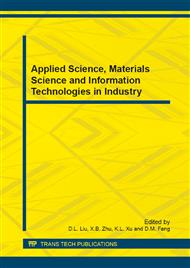p.1811
p.1819
p.1822
p.1826
p.1830
p.1835
p.1840
p.1845
p.1850
The Cloud Computing Tasks Scheduling Algorithm Based on Improved K-Means
Abstract:
Cloud task scheduling is a hot technology today, how to effectively improve the utilization of resources, time efficiency, load balancing, is the focus and difficult of the study. The time efficiency, load balancing of K-Min algorithm still need to be improved, so this paper proposes cloud computing task scheduling algorithm based on modified K-Means (Improved K-Min), firstly, This paper improves the k-means algorithm using the BFA and PSO,then according to the length attribute of the task, resource requirements, the algorithm uses the improved K-means for packet processing tasks, then performs Min-Min scheduling algorithm within the group. Through theoretical research and simulation of Cloud-sim platform, when the number of tasks is 300, experimental result is best, comparing with Min-Min algorithm, the total task completion time improved 17.13%.
Info:
Periodical:
Pages:
1830-1834
Citation:
Online since:
February 2014
Authors:
Keywords:
Price:
Сopyright:
© 2014 Trans Tech Publications Ltd. All Rights Reserved
Share:
Citation:


